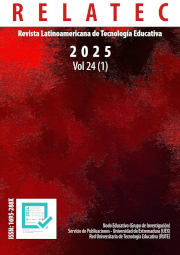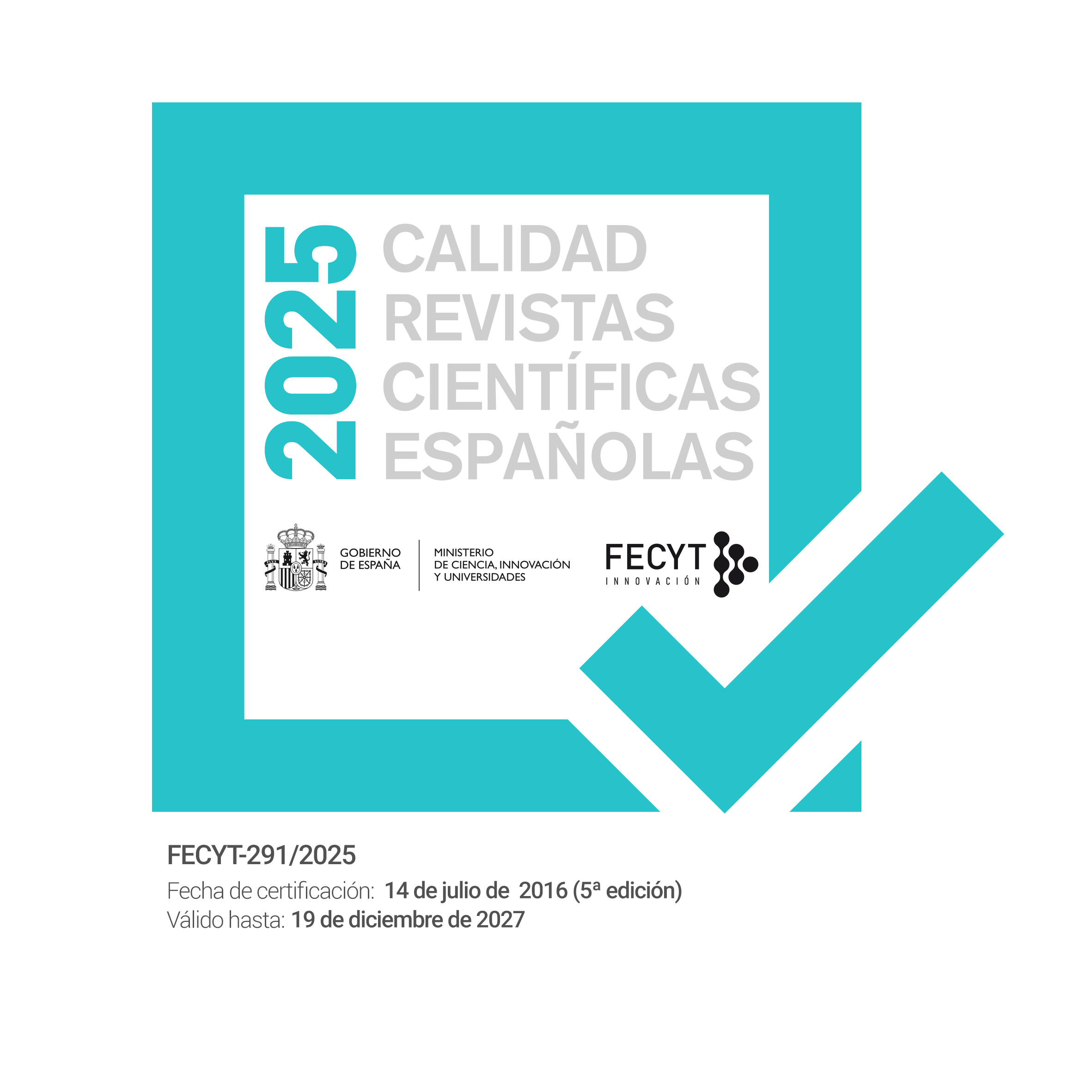Analysis of Pedagogical-Digital Competence in Teacher Educators: Practices and Perceptions
DOI:
https://doi.org/10.17398/1695-288X.24.1.29Keywords:
Digital literacy, Multiple literacies, Initial teacher training, beliefsAbstract
The digital competence of future teachers has been a concern of public policy in Chile, reflected in the development of Information and Communication Technology (ICT) standards that emphasize the importance of incorporating digital technologies pedagogically in initial teacher education (ITE). A lack of digital pedagogical skills has been reported among teachers in training (Silva et al., 2019). The development of digital teaching competence (DTC) also involves those who train teachers. This study focuses on exploring the beliefs of university professors to analyze their impact on the use of technologies in ITE. A Sequential Exploratory Design (DEXPLOS), combining qualitative and quantitative methods, was conducted with teacher trainers. Content analysis was performed in the qualitative phase (n=13), and factorial analysis in the quantitative phase (n=67) using a questionnaire. The results reveal advances in the ethical and digital citizenship aspects of the DTC of the participating teacher trainers but do not suggest a reflective approach during practice, which affects the development of agency among future teachers. In summary, the didactic integration of digital technologies is not evident. The guidelines for didactic-digital competence highlight the importance of promoting and integrating these skills into teaching practices as an essential requirement to improve the conditions of children and adolescents facing the uncertainty of the 21st century.
Downloads
References
Ayala, T. (2015). Redes sociales e hiperconectividad en Futuros profesores de la generación digital. En Ciencia, Docencia y Tecnología 26 (51), 244–270. http://pcient.uner.edu.ar/index.php/cdyt/article/view/58
Badilla-Quintana, M. G., Jiménez-Pérez, L., y Careaga-Butter, M. (2013). Competencias TIC en formación inicial docente: estudio de caso de seis especialidades en la Universidad Católica de la Santísima Concepción. Aloma, 1(31), 90–97. www.revistaaloma.net
Brun, M., & Hinostroza, E. J. (2014). Learning to become a teacher in the 21st century: ITC integration in Initial Teacher Education in Chile. Educational Technology & Society, 17(3), 222–238. https://www.jstor.org/stable/jeductechsoci.17.3.222
Cabello, P., Ochoa, J. M., & Felmer, P. (2020). Tecnologías digitales como recurso pedagógico y su integración curricular en la formación inicial docente en Chile. Pensamiento Educativo, 57(1), 1–20. https://doi.org/10.7764/PEL.57.1.2020.9
Castañeda, L., Esteve, F., & Adell, J. (2018). ¿Por qué es necesario repensar la competencia docente para el mundo digital? Revista de Educación a Distancia, 56. https://doi.org/10.6018/red/56/6
Cateriano-Chavez, T. J., Rodríguez-Rios, M. L., Patiño-Abrego, E. L., Araujo-Castillo, R. L., & Villalba-Condori, K. O. (2021). Competencias digitales, metodología y evaluación en formadores de docentes. Campus Virtuales, 10(1), 153–162. https://rabida.uhu.es/dspace/bitstream/handle/10272/19345/Competencias.pdf?sequence=2
Cazden, C., Cope, B., Gee, J., Kalantzis, M., Kress, G., Luke, A., Luke, C., Michaels, S., Nakata, M., & Cook, J. (1996). A Pedagogy of Multiliteracies: Designing Social Futures. Harvard Educational Review, 66(1), 60–93. https://doi.org/10.17763/haer.66.1.17370n67v22j160u
Cope, B., & Kalantzis, M. (2023). Towards Education Justice: A pedagogy of Multiliteracies, Revisited. In B. Cope, M. Kalantzis, & G. C. Zapata (Eds.), Multiliteracies in International Educational Contexts: Towards Education Justice? (pp. 1–30). Routledge.
Cerda, C., Huete-Nahuel, J., Molina-Sandoval, D., Ruminot-Martel, E., y Saiz, J. L. (2017). Uso de Tecnologías Digitales y Logro Académico en Estudiantes de Pedagogía Chilenos. In Estudios Pedagógicos XLIII (Vol. 3).
Esteve-Mon, F. M., Gisbert-Cervera, M., & Lázaro-Cantabrana, J. L. (2016). La competencia digital de los futuros docentes: ¿Cómo se ven los actuales estudiantes de educación? Perspectiva Educacional, 55(2), 38–54. https://doi.org/10.4151/07189729-vol.55-iss.2-art.412
Esteve-Mon, F. M., Llopis-Nebot, M. A., & Adell-Segura, J. (2020). Digital Teaching Competence of University Teachers: A Systematic Review of the Literature. Revista Iberoamericana de Tecnologias Del Aprendizaje, 15(4), 399–406. https://doi.org/10.1109/RITA.2020.3033225
Fons, M., & Palou, J. (2014). Representaciones de los profesores en torno a la didáctica del plurilingüismo. Un proceso de formación. Tréma, 42, 114–127. https://doi.org/10.4000/trema.3242
Frau-Meigs, D., Velez, I., & Michel, J. F. (2017). Public policies in media and information literacy in Europe: Cross-country comparisons. In Public Policies in Media and Information Literacy in Europe: Cross-Country Comparisons. https://doi.org/10.4324/9781315628851
García Vélez, K. A., Ortiz Cárdenas, T., & Chávez Loor, M. D. (2021). Relevancia y dominio de las competencias digitales del docente en la educación superior. Revista Cubana de Educación Superior, 40(3), 1–15. http://scielo.sld.cu/scielo.php?script=sci_arttext&pid=S025743142021000300020&lng=es&tlng=es
Hernández Sampieri, R., Fernández Collado, C., & Baptista Lucio, P. (2014). Metodología de la Investigación (6a). McGraw-Hill.
Kalantzis, M., Cope, B., & Zapata, G. C. (2019). Las alfabetizaciones múltiples: Teoría y práctica. Octaedro.
Modelski, D., Giraffa, L. M. M., & Casartelli, A. de O. (2019). Tecnologias digitais, formação docente e práticas pedagógicas. Educação e Pesquisa, 45(0). https://doi.org/10.1590/S1678-4634201945180201
OECD. (2019). OECD future of education and skills 2030.
Ottestad, G., Kelentrić, M., & Gudmundsdóttir, G. B. (2014). Professional digital competence in teacher education. Nordic Journal of Digital Literacy, 2014(4), 243–249. https://doi.org/10.18261/issn1891-943x-2014-04-02
Pozo, J. I., Scheuer, N., Pérez Echeverría, M. del P., Mateos, M., Martín, E., & de la Cruz, M. (2006). Nuevas formas de pensar la enseñanza y el aprendizaje. Graó.
Redecker, C. (2017). Marco europeo para la competencia digital de los educadores. DigCompEdu. Joint Research Centre (JRC). https://ec.europa.eu/jrc/sites/jrcsh/files/digcompedu_leaflet_es-nov2017pdf.pdf
Rivera Polo, F. (2023). Brecha Digital e Inclusión. https://ap.ohchr.org/documents/S/HRC/d_res_dec/A_HRC_38_L10.pdf
Rodríguez-Rodríguez, J., & Reguant-Álvarez, M. (2020). Calcular la fiabilidad de un cuestionario o escala mediante el SPSS: el coeficiente alfa de Cronbach. REIRE Revista d Innovació i Recerca En Educació, 13(2), 1–13. https://doi.org/10.1344/reire2020.13.230048
Sandoval Rubilar, P., Rodriguez Alveal, F., & Maldonado Fuentes, A. C. (2017). Evaluación de la alfabetización digital y pedagógica en TIC , a partir de las opiniones de estudiantes en Formación Inicial Docente. Educação e Pesquisa, 43(1), 127–143. https://doi.org/https://dx.doi.org/10.1590/s1517-9702201701154907
Santos, U., Pérez-García, A., & Ramírez-Mera, U. N. (2022). La competencia digital del profesorado universitario en la formación de maestros. Campus Virtuales, 11(2), 49. https://doi.org/10.54988/cv.2022.2.1043
Silva, J., Lázaro, J. L., Miranda, P., Morales, M. J., Gisbert, M., Rivoir, A., & Onetto, A. (2019). Digital teaching competence in initial training: Case studies from Chile and Uruguay. Education Policy Analysis Archives, 27. https://doi.org/10.14507/epaa.27.3822
Silva, J. (2012). Estándares TIC para la Formación Inicial Docente: una política pública en el contexto chileno. Archivos Analíticos de Políticas Públicas Aape Epaa, 20(7), 1–15. http://epaa.asu.edu/ojs/article/view/962
TALIS-OECD. (2018). TALIS - The OECD Teaching and Learning International Survey. https://www.oecd.org/education/talis/chile-talis.htm
Tondeur, J., van Braak, J., Ertmer, P. A., & Ottenbreit-Leftwich, A. (2017). Understanding the relationship between teachers’ pedagogical
beliefs and technology use in education: a systematic review of qualitative evidence. Educational Technology Research and Development, 65(3), 555–575. https://doi.org/10.1007/s11423-016-9481-2
Torres Barbazal, L., Martínez Gimeno, A., Jaén Martínez, A., & Hermosilla Rodríguez, J. M. (2022). La percepción del profesorado de la Universidad de Pablo de Olavide sobre su Competencia Digital Docente. Pixel-BiT. Revista de Medios y Educación, 63, 35–64. https://doi.org/10.12795/pixelbit.91943.
Verdú-Pina, M., Lázaro-Cantabrana, J. L., Grimalt-Álvaro, C., & Usart, M. (2023). El concepto de competencia digital docente: revisión de la literatura. Revista Electrónica de Investigación Educativa, 25(e11), 1–13. https://doi.org/10.24320/redie.2023.25.e11.4586
Villarroel Soto, R. (Ed. ). (2018). Ética de la investigación en educación. OCHOLIBROS.
Voogt, J., Fisser, P., Pareja Roblin, N., Tondeur, J., & van Braak, J. (2013). Technological pedagogical content knowledge - A review of the literature. Journal of Computer Assisted Learning, 29(2), 109–121. https://doi.org/10.1111/j.1365-2729.2012.00487.x
Walker, J., & Maddan, S. (2012). Understanding Statistics. Jones and Bartlett Publishers.
Downloads
Published
Issue
Section
License
Copyright (c) 2025 Lorena Berríos-Barra, Margarita Calderón-López

This work is licensed under a Creative Commons Attribution-NonCommercial-NoDerivatives 4.0 International License.
Authors who publish in this journal accept the following conditions:
1. The Author retains copyright in the article. Upon acceptance of the article, the author shall grant to the Publisher the right of first publication of the article. with the dcoument registered with the Creative Commons Attribution-NonCommercial-NoDerivative 4.0 International (CC BY-NC-ND) license, which allows to third parties to use what is published whenever they mention the authorship of the work and the first publication in this journal.
2. Authors can make other independent and additional contractual agreements for the non-exclusive distribution of the article published in this journal (eg, include it in an institutional repository or publish it in a book) provided they clearly indicate that the work was published for the first time in this journal.
3. Authors are allowed and recommended to publish their work on the Internet (for example on institutional or personal pages) before and during the review and publication process, as it can lead to productive exchanges and a greater and faster diffusion of published work (see The Effect of Open Access).









